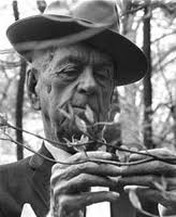John Veverka & Associates
Main menu
- Home Page
- Our Range of Services
- Separator 2
- Interpretive Coaching
- Interpretive Planning
- Interpretive Plan Outline
- Interpretive Training
- John Veverka Resume
- Qualifications
- NEW Advanced Interp. Text Book
- Separator 11
- InterpNEWS
- Separator 12
- Library
- Expert in Interpretation
- JVA NEWS, Courses and Updates
- Certificates
- Separator 47
- Planning/Design of Interpretive Panels
- Separator 48
- Interpretive Writing
- Separator 49
- Interpretive Writing Course
- Separator 50
- Interpretive Trails Course
- Separator 56
- Interpretive Panels Course
- Separator 55
- Introduction to Heritage Interpretation Course
- Separator 54
- Interpretive Planning & Design of Marketing Brochures Course
- Training for Interp. Trainers
- Separator 57
- Interpretive Exhibits Course
- Separator 58
- Interpretive Master Planning Course
- Separator 59
- Interpretive Planning for Scenic Byways.
- Critiquing and Coaching Interpretive Staff
- Separator 31
- Advanced Interpretive Planning
- Interpretive Training Center Course Catalogue
- Separator 32
- Interp. for International Visitors course.
- Separator 33
- Interpretive Exhibits Evaluation
- Separator 34
- Interp. Center Feasibility Analysis Course.
- Separator 35
- Interp. for Commercial Tour Providers
- Separator 36
- Interpretive Researchers Guide for Visitor Studies
- Separator 37
- Separator 13
- Interp. Planning for Historic Homes
- Separator 14
- Heritage Interpretation Training Center
- Interpretive Planning for Botanical Gardens
- Separator 15
- An introduction to planning and presenting live interpretive programs and tours for Museum/Heritage Site Docents and Volunteers.
- Developing Marketing Plans for Heritage & Tourism Sites and Attractions
- Separator 16
- Interpretation Book Store
- Separator 17
- Heritage Interpretation Resource Center
- Interpretive Planning for Historic Farms
- Developing Successful Partnerships
- Developing Interpretive Outreach Programs
- Community Interpretation Planning
- Interpreting Gravestones and Historic Cemeteries
- Using Interpretation to Accomplish Management Objectives.
- An Interpreters Guide for Survival Economics.
- Separator 18
- Innovative Strategies for Interpretive Media and Services Planning.
- Separator 19
- A Curators Guide for Developing Gallery Tours.
- Advanced Interpretive Writing - Technical Publications
- Page 2
- Advanced Interpretive Services for Managers, Supervisors, Team Leaders and Sr. Staff.
- Separator 20
- Advanced Interpretation for Chiefs of Interp. - Interpretive Managers - Regional Interp. Specialists
- Interpreting Critical Issues.
- Separator 21
- Developing Commercial Interpretation for Resorts, Cruise Ships, Campgrounds and Tourism Attractions.
- Separator 38
- Planning and developing a new commercial tour guiding business.
- Separator 39
- Interpretive Evaluation, Visitor Studies and Site Assessment Center
- Separator 40
- The Center for Interpretive Planning Advancement & Excellence.
- Developing Requests for Proposals (RFPs)
- Separator 41
- Planning and Facilitating Focus Workshops
- Separator 42
- InterpNEWS Advertising Details
- Planning for Interpretive Experiences
- 40 Years a Heritage Interpreter
- Separator 43
- Interpretive Techniques - The Rest of the Story Course
- Separator 44
- Certified Professional Interpretive Planner Certificate
- Certified Professional Interpretive Program
- Certified Professional Interpretive Trainer certificate program.
- Separator 53
- Certified Professional Heritage Interpreter certificate program.
- Separator 52
- Certified Professional Interpretive Writer certificate program.
- Visitor motives for attending interpretive programs.
- Separator 45
- Exhibit Rehab Course
- Separator 46
- Developing Training Workbooks & Manuals
- Separator 22
- Planning for Railroad Museums and Sites.
- Separator 51
- Climate Change Interpretation Course.
- Separator 23
- When there's nothing left but the story - interp. storytelling.
- Separator 24
- Interpreting Legends Myths and Fables
- Separator 25
- InterpSHARE - Seminars 2022
- Separator 26
- Interpreting Invasive Species
- Separator 27
- Interpretiing Edible Insects
- Separator 28
- Interpretaive Planning for Climate Change
- Separator 29
- HITC Climate Crisis Resource Center
- Separator 30
- Separator 5
- PUP Members Only
- Starting a new Interp Consulting Business
- Panels 4 Week Course
- Separator 8
- Interpretive Writing - 4 Week Course
- Marketing - 4 Week Course
- Separator 7
- Intro to Interpretation - 4 Week Course
- Separator 9
- Interp Climate Change - 4 Week Course
- Separator 10
- Exhibit Rehab 4-Week Course
- Separator 6
- Level 1
- Johns Interpreters Blog
- Separator 4
- Economics for Heritage Interpreters
Interpretive Techniques - The Rest of the Story Course
Advanced Interpretive Techniques -
Interpreting the "rest of the story".

Paul Harvey and Freeman Tilden -
tellers whose techniques you'll learn to use.
12 Units, 2.5 CEU Credits
Interpreting "the rest of the story", a powerful Interpretive communications technique for revealing and releasing the "rest of the stories" hidden in artifacts, objects, historical figures/events, landscapes, or sites through both live presentations and interpretive media text and label copy.
A long time ago -
This course will help you utilize and blend the Paul Harvey Rest of the Story format with Tilden's Interpretive Principles. An interpretive technique marriage I think you can embrace and use throughout your interpretive career.
You can start the course at any time and complete the course at your own pace. We can chat anytime you would like to via e-
Who is this course for:
-
have had no formal university level training or courses in heritage interpretation.
-
-
-
-
interpretive projects and desire a basic understanding of what interpretation actually is.
-
communications design (just because you call it "interpretive" doesn't mean that it is!).
-
planning and presentation skills.
Course Goals: Upon completion of this course participants will:
-
-
-
* Developing and writing interpretive themes.
* Developing and writing interpretive objectives (learn, feel, do).
* Develop skills in understanding how visitors learn and remember in heritage settings.
* Develop a solid understanding of the interpretive planning process for live/conducted
interpretive walks, tours or programs -
* Acquire practical applications of interpretive program and tour presentation skills.
* Being able to use the interpretive planning model for planning/developing interpretive
media to include: interpretive panels, interpretive exhibits, audio interpretation media,
self-
* Basics of interpretive writing using the "rest of the story" format.
About the Instructor: Prof. John Veverka
-
-
-
-
-
-
-
-
-
The Advanced Interpretive Techniques -
the Rest of the Story course units.
Unit One -
Unit Two -
Unit Three -
Unit Four -
Unit Five -
Unit Six -
Unit Seven -
Unit Eight -
Unit Nine -
Unit Ten -
Unit Eleven -
Unit Twelve-
This new course is ready to go. . You'll be able to pay for the course below via credit card or Pay Pal. You can also pay by check.
Cost for the 30 hours training with live interaction with the instructor is $175.00 USD.
If you're interested in this course and would like to enroll in it -
<form action="https://www.paypal.com/cgi-
<input type="hidden" name="cmd" value="_s-
<input type="hidden" name="hosted_button_id" value="LY763ADZNDCYQ">
<input type="image" src="https://www.paypalobjects.com/en_US/i/btn/btn_buynowCC_LG.gif" border="0" name="submit" alt="PayPal -
<img alt="" border="0" src="https://www.paypalobjects.com/en_US/i/scr/pixel.gif" width="1" height="1">
</form>
Feel free to contact me if you have any questions at all.
Contact John at:
jvainterp@aol.com
www.heritageinterp.com
Skype: jvainterp